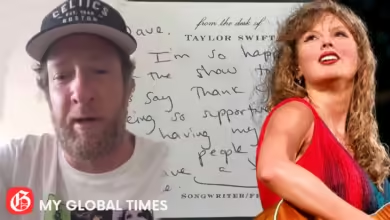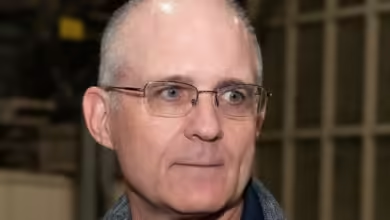Ukraine Ambassador’s Interview Raises Eyebrows: India’s Role in Russia-Ukraine Conflict Under Scrutiny

In a recent interview with Hindustan Times, the Ukrainian Ambassador to India, Alexander Polishuk, made provocative statements regarding India’s stance in the ongoing Russia-Ukraine conflict. The ambassador’s remarks, which appeared to put pressure on India to mediate between Russia and Ukraine, raised questions about Ukraine’s expectations and its approach to diplomacy. The ambassador’s comments reflect a growing tension that could shape India’s diplomatic standing on the global stage.
Ukrainian Ambassador’s Controversial Statements
The Ukrainian ambassador’s interview sparked debate by framing India’s role in a way that some perceive as borderline blackmail. During the interview, the ambassador stressed Ukraine’s support for India’s United Nations Security Council (UNSC) membership bid but linked this endorsement to India’s active involvement in mediating peace talks between Russia and Ukraine. Specifically, the ambassador suggested that India should stop being a “courier” between the two countries and instead play a more active mediator role—on Ukraine’s terms.
The “Sense of Entitlement” in Ukrainian Diplomacy
The ambassador’s remarks carried an air of entitlement, something that several political commentators have noted about Ukraine’s stance, particularly its leadership under President Volodymyr Zelenskyy. Critics, including India’s former Foreign Secretary, Kanwal Sibal, noted that the Ukrainian ambassador’s comments reflect a Western-centric mindset. This sentiment is perceived as Ukraine expecting concessions from India without offering any in return, which can be seen as a strategy to pressure India into playing a role that aligns with Western interests.

India’s Position as a Potential Mediator
India’s role in the Russia-Ukraine conflict has been cautiously neutral, as evidenced by Prime Minister Narendra Modi’s recent diplomatic efforts with both Russia’s President Vladimir Putin and Ukraine’s President Zelenskyy. India’s stance has consistently promoted dialogue and diplomacy as the only viable solution to the conflict. In fact, during the recent BRICS summit, India reiterated its belief in peace negotiations but stopped short of siding with any party.
Ukraine, however, seems to want India to go beyond this neutral stance and actively push Russia into peace talks that favor Ukraine’s interests. This demand, as critics argue, puts undue pressure on India and undermines its sovereign decision-making process.
Diplomatic Tensions on the Global Stage
The ambassador’s interview comes at a time when diplomatic tensions between Russia, Ukraine, and their respective allies are at an all-time high. The United States and the United Kingdom have both ramped up their military aid to Ukraine, recently pledging long-range missiles. This escalation has led to harsh warnings from Russia, with President Putin stating that any attack on Russian soil using these weapons would be considered an act of war by NATO. Such developments place India in a precarious situation as it navigates its relationships with both Russia and the West.
Zelenskyy’s “Spoiled Child” Diplomacy?
Political analysts in India and abroad have drawn parallels between Ukraine’s recent diplomatic strategies and the behavior of a “spoiled child” in international relations. They argue that Ukraine, under Zelenskyy, has received considerable support from Western nations, often through diplomatic or economic pressure. The ambassador’s interview in Hindustan Times is seen by some as an extension of this strategy, where Ukraine is now trying to extend this pressure tactic to India.
However, this approach may not resonate well in the Global South, where nations like India and China are unlikely to bend to the same diplomatic tactics that work in the West. India, in particular, has a long history of balancing relations between global powers, and it is unlikely to be swayed by pressure tactics, no matter how subtly they are applied.
India’s Role in Peace Talks: A Balancing Act
While Ukraine pushes for a more active Indian role in mediation, the reality is more complex. Any successful peace negotiation would require compromise from both sides, something Ukraine’s ambassador seems reluctant to acknowledge. As former diplomat Kanwal Sibal pointed out, the interview reveals that Ukraine is not advocating for a neutral peace process but one where Russia is pressured into accepting Ukraine’s terms.
India, as a rising global power, has always maintained that dialogue and diplomacy are the keys to resolving conflicts. This stance was reiterated during recent high-level talks with both Russia and Ukraine, where India emphasized the importance of diplomatic negotiations rather than military escalation.
Will India Play a Larger Role?
Ukraine’s ambassador also referenced India’s potential role in hosting future peace summits, hinting at Ukraine’s disappointment with India’s refusal to sign the previous peace communiqué in Switzerland. According to the ambassador, this refusal prevents India from hosting the next summit, further straining Ukraine’s diplomatic ties with India.
Secret Nuclear Deal Between Russia and Iran: Implications for Global Geopolitics
However, India’s diplomatic policy has always been based on a balanced approach. Hosting a summit or taking a more active mediation role would require neutrality, something Ukraine’s ambassador seems unwilling to accept.
Conclusion: A Call for Diplomatic Balance
Ukraine’s ambassador’s interview has undoubtedly sparked controversy, but it also highlights the complex diplomatic environment in which India operates. As a nation with close ties to both Russia and the West, India is in a unique position to influence peace talks—if it chooses to do so. However, Ukraine’s sense of entitlement and borderline diplomatic pressure could backfire, especially if India feels its sovereignty is being challenged.
For now, India is likely to maintain its position of promoting dialogue and diplomacy, while carefully navigating the growing tensions between Russia, Ukraine, and their global allies.






One Comment